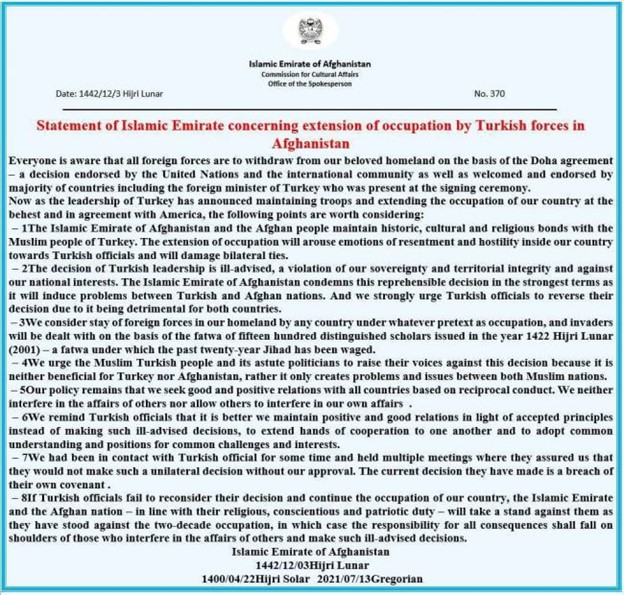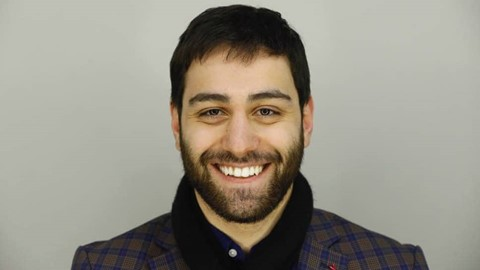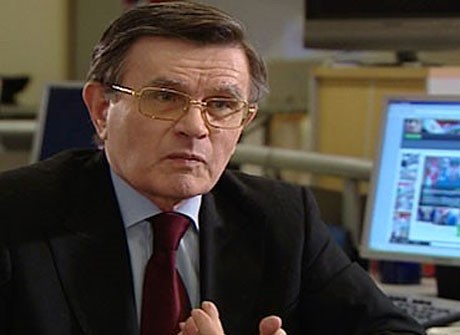The United States and Turkey reached an agreement under which Turkey is to secure Kabul’s airport after the withdrawal of all American and NATO allied troops from Afghanistan by the end of August, 2021.
This prompted a vigorous condemnation from the Taliban including the threat of Jihad: “We consider stay of foreign forces in our homeland by any country under whatever pretext as occupation…The extension of occupation will arouse emotions of resentment and hostility inside our country towards Turkish officials and will damage bilateral ties.”[1]
On July 19, 2021, Turkish President Recep Tayip Erdogan responded to the Taliban’s charge that the Turks would be treated as occupiers if their troops remained in Afghanistan. Actually, retorted Erdogan it was the Taliban that must stop its occupation of Afghanistan, and end its wrong approach.
“The Taliban should end the occupation of the soil of their brothers,” Erdoğan stated in a press conference upon his departure to Northern Cyprus.[2]
Ankara is motivated by varied considerations. For one, it helps Turkey patch up relations with NATO. Hasan Selim Ozertem, an independent security analyst opined: Turkey believes this step can show it remains an indispensable NATO partner, a reminder that it can work with the US, that it is one of the few countries that can take on such a responsibility.” Ozertem added that. Since Biden’s election, Erdogan has pledged to mend ties with the US, which has put sanctions on Ankara over its purchase of an advanced Russian missile system designed to shoot down Nato jets. A deal over Afghanistan “puts them [the disputes] in deep freeze and gives the sides a positive agenda to focus on” [3]
The pro-Erdogan Daily Sabah believes that Afghanistan will add to the string of successes recently achieved by Turkey in restoring order in countries driven to chaos by the failure of others. Turkey was not being foolhardy in entering Afghanistan. It had faced daunting tasks in Syria and Libya. The inhabitants were much better off following Turkish intervention.
Therefore Turkey’s historical legacy, administrative power and cultural ties with the region will assist Afghanistan as well to become a stable country both in political and economic terms…”[4]
Ankara’s decision to keep a contingent in Afghanistan aroused mixed feelings in Russia. On the one hand, Russia benefited from America’s role in Afghanistan, because it protected the Central Asian states. Russian President Vladimir Putin reportedly offered the U.S. the use of Russian military bases in Central Asia for information gathering purposes and coordination of activity. [5] If Turkey would somehow fill the US’ shoes in Afghanistan and prevent a Taliban victory this could potentially save Russia a headache. On the other hand, Russia has already sought an accommodation with the Taliban, in the expectation of that organization’s victory.[6] If Turkey, is successful in establishing its presence in Afghanistan, it will strengthen its hand in the competition with Russia over Central Asia.
All these considerations were moot if Turkey would fail in Afghanistan as the British, Russians and Americans had failed before them. The following report surveys opinions by Russian officials and experts on Turkey’s ambitions in Afghanistan and its prospects should the Taliban make good on its threats:

Sergey Tsekov, a member of the Federation Council’s Committee on International Affairs believes that Turkey will fail against the Taliban and the states of Central Asia and the Middle East sense the power of the Taliban.
“The Taliban virtually defeated the US. Thus, in my opinion, Turkey will consider the issue carefully, and decide against meddling in Afghan affairs. The Taliban has proven its capability as a paramilitary organization. Yes, it’s banned in our country and considered a terrorist movement. But if they will engage in direct talks with the legitimate [Kabul] government, it will be, of course, to Afghanistan’s benefit,” concluded Tsekov.[7]
The Russian President’s Special Representative for Afghanistan, Zamir Kabulov backed the Taliban’s charge that Turkey’s plans to maintain Kabul airport’s security after the US withdrawal from Afghanistan violate the agreements with the Taliban.[8]
Andrey Serenko: The Taliban Will Be Leery Of Taking On The Turks But Clashes Could Still Erupt
According to Andrey Serenko, the Head of the Center for Afghan Policy Studies, after September 11 there will be prospects for direct clashes between the Taliban and the Turks. “The Taliban tried to avoid confrontations with NATO forces to the very last. The latter operates on the principle of retaliation, following an attack on one of the member-states. If the Taliban will attack the Turks, it could allow to the alliance to conduct air strikes in return. This definitely is not in the Taliban leaders’ interests,” argued Serenko.
Aside from fearing a NATO counterstrike, Serenko believes that the Taliban still have a full plate in establishing control over the country and it is not a done deal. Although the Taliban offensive is still ongoing, it’s not very effective: the security forces have recaptured a number of previously taken districts. Additionally, the Taliban lacks resources to capture large cities.
“So now the Taliban’s problem is not to seize lands but to retain them. Thus, the movement is hardly eager to engage in clashes with the Turks,” stressed Serenko.
Serenko believes that the Taliban statement should not be construed as a direct threat but as a warning, because the Taliban is well aware that “it’s unwise to create new enemies.”
Even though logic dictates that the Taliban should refrain from taking on the Turks they may be pressured into doing so: “But one cannot leave the issue unattended, because other interested parties are monitoring the situation. If the Taliban won’t keep their promises about the attacks on Turks, then the withdrawal of troops (for instance the British contingent) could happen very differently. For example, some troops might be left in the country in order to protect the embassy. There is a risk for the Taliban of being labeled as weak in jihadist society. Although the very fact that Ankara has authorized its actions only with the US, NATO and the Afghan government is a slap in the face of the Taliban.”

Georgy Asatryan, a researcher at the Institute of Scientific Information on Social Sciences of the Russian Academy of Sciences concurs with Serenko.
“The Taliban probably isn’t planning to conduct open military strikes against the Turks, as its main priority is to fight its enemies within Afghan society…The Taliban may well leave the Kabul airport to the Turks. This is not the worst scenario for them. But certain groups in the movement, prompted by foreign forces, may attack Turkish soldiers.”
Asatryan doubts that the Taliban will be able to cause any serious damage to Turkey’s interests in Afghanistan.
“The Turks have sufficiently strong influence in the country among the different strata of society. I think the Turks won’t withdraw from Afghanistan, and the airport serves as a strategic facility. The Taliban will oppose this in one way or another, trying to eject the Turks. It won’t work though.”

Pakistan Will Pull At The Taliban’s Leash
Both Serenko and Asatryan believe that the Turks have a valuable hidden asset in Pakistan that exerts a major influence on the Taliban. This reduces the prospect of a direct confrontation with the Taliban.
“Pakistan is the Taliban’s master. If you are attacked by a dog with a collar, you’ll deal with the owner. Thus, one has to negotiate Pakistan, which is trying to exert pressure on the Afghan government via the Taliban. But Pakistan and Turkey are strategic allies, so nobody needs the situation to get aggravated,” explained Serenko.
According to the President of the Middle East Institute, Yevgeny Satanovsky the risk of clashes between the Taliban and the Turks in Afghanistan is increasing. “The Taliban are ready for the most unexpected moves, especially since the Taliban is essentially comprised of disparate groups, each with its own leadership. You never know what some field commander will do. Some will cooperate with the Turks, others will kill them and take them hostage.”
Satanovsky: Erdogan Does Not Have To Worry About Domestic Opinion
Satanovsky believes that Turkey will not be deterred by the Taliban threats, as Ankara has long been harboring plans to get a foothold in Afghanistan in order to intensify its foreign policy influence and expansion in Central Asia. Meanwhile, within Turkey itself nothing threatens Erdogan over the consequences of Afghan campaign, “Erdogan took out all his rivals and changed the constitution. The people welcome the consolidation around the leader and support his ideas.”
Erdogan can also count on the support of ethnic Turks in Afghanistan: “There has long been a Turkish presence at Afghan lands. [Ankara] mainly relies on local Turkic speaking peoples, i.e. Uzbeks and Turkmens, and to a lesser extent – on other peoples, such as Tajiks. In addition, Erdogan continues to support the Uighurs.”
According to Satanovsky, if Turkey gains a foothold in Afghanistan, it will increase its influence in the region. “The Turks will promise to provide to Asian countries help, protection and new arrangements. In addition, Turkey will work against Russia. So why shouldn’t Erdogan take the chances and meddle in Afghan’s affairs?”[9]
Former Russian Diplomat Matuzov: Turkey Threatens Russia By Its Presence In Afghanistan, But Will Be Checked By The Taliban
The former Russian diplomat Vyacheslav Matuzov, who served in the US and Lebanon cites two reasons behind Turkey’s desire to get a foothold in Afghanistan. On the one hand, “Turkey is a conduit for American foreign policy in Afghanistan,” argued the expert, and on the other hand, “Turkey is pursuing its own goals.”
“Who is Erdogan and his Justice and Development Party? Essentially, they are Muslim Brotherhood that is banned in Russia. With one hand Erdogan seeks to promote Islamic ideology with a dash of neo-Ottomanism in various regions. This fact explains the Turkey’s attempts to strengthen its influence in Libya, Iraq, Egypt, Syria, Pakistan and Afghanistan,” claimed Matuzov.
Matuzov warned that Erdogan’s policy is aimed northwards, towards Russia’s borders. “This geographic region includes not only Azerbaijan. According to the [pan-]Turanian concept, Turkey’s interests include the Volga region, Tatarstan, Tuva and other regions [of Russia]. I am not even talking about Kazakhstan. They have established a major foothold there.”
Matuzov stressed that the US exploits Erdogan’s “neo-Ottoman and [pan-] Turanian aspirationss,” encouraging him in every possible way. “For instance, strengthening of Turkey’s positions in Central Asia will bring there not the Chinese or Russians, but Americans. Turkey is one of the leading NATO member-states. One shouldn’t forget about this fact.”
However, Matuzov does not believe that the Turks will prove able to gain a foothold in Afghanistan, due to the opposition of the Taliban, “which will certainly become the ruling force in the country”. The Taliban has put Turkey on notice that it won’t tolerate any foreign military presence. “The ambitions of the Americans, who planned to put Turkish allies in Kabul instead of their forces, will be checked…the Americans couldn’t deal with the Taliban for 20 years. The chances of Turkey doing so are even less,” predicted Matuzov.[10]

Journalist Alexander Bolgov: Turkey’s Ambitions Have Some Basis, But Distance Disqualifies Ankara
The journalist Alexander Bolgov believes that the American withdrawal creates a vacuum in Central Asia that the great powers, including the Americans will try to fill. Bolgov believes that Russia will emerge ascendant. As for Turkey, “If one to look at the map, it would be apparent that Turkey is far away from Tashkent, Bishkek or Dushanbe. However, Ankara is using the unrest in Afghanistan to strengthen its influence in Central Asia at an unprecedented pace. The country deploys all means: economic and ideological projects, Pan-Turkism [ideology], creation of a ‘common Turkic market’, as well as military cooperation. And in fact, there are achievements [that Turkey can] be truly proud of. Azerbaijan’s victory in the Karabakh war was largely facilitated by Turkey’s assistance. Now Erdogan wants to use this success in Central Asia.
“But Ankara is not the only power, which has interests in the region. Plus, Turkey situated far away.”[11]
 Eurasia Press & News
Eurasia Press & News




